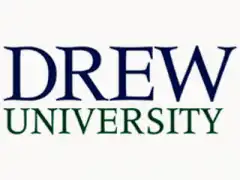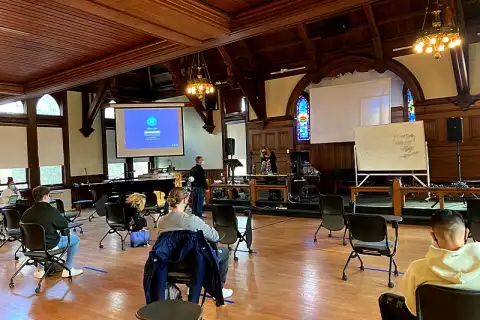Bachelor of Science - Environmental Science
- 2 years
- Duration
- 50,190 USD/year
- Price
- Rolling admission
- Start
- Rolling admission
- Deadline
- Bachelor
- Degree
- Campus
- Format
- Madison / USA
- Location
- Drew University
- School
Program description
The Environmental Science major emphasizes the necessary skills and experiences for science-related employment and graduate studies. The course Great Challenges in Environmental Science introduces students to the major, and they take basic Biology and Chemistry classes, as well as Environmental Science courses and electives from other disciplines. Students who major in Environmental Studies and Sustainability or Environmental Science finish their coursework by completing Environmental Studies and Sustainability (ESS) Capstone Seminar.
The major is meant to be very flexible, allowing students to pursue a broad variety of interests and vocations, including research, environmental law, non-profit work, consulting, and employment with state and federal environmental agencies. Some graduate school programs and other professional alternatives demand specialist skills such as statistics, organic chemistry, or economics; hence, students should seek advice from an ESS faculty member early in their academic careers.
Program structure
I. Core Required Courses
- Great Challenges in Environmental Science
- Principles of Physical Geology
- Ecology and Evolution
- Principles of Chemistry or Principles of Chemistry, Advanced Section
- Introduction to Statistics
- Advanced Environmental Science
- Environment, Society and Sustainability
- Geographic Information Systems
- Environmental Studies and Sustainability Capstone Seminar
II. Environmental Science Electives
- Climate Change and Global Sustainability
- Energy and Environment
- Topics in Environmental Science:
- Agroecology
- Advanced Topics in Environmental Science
- Advanced GIS
- Research in Environmental Science
- Immersive Research or Project
- Specialized Honors
- Conservation Biology
- Animal Behavior
- Freshwater Ecology
- Tropical Marine Ecology
- Forest Ecology
- Ornithology
- Organic Chemistry
- Fundamentals of Analytical Chemistry
- Advanced Analytical Chemistry
- Environmental Chemistry
- Data Science: Introduction, History, and Case Studies
- Intermediate Statistics
- Environmental Health
- Topics in Public Health: Bioscience
III. Environmental Studies Elective
- Indigenous Environments: Literature and Film
- Environmental Writing and Eco-Criticism
- Nature Writing
- Graphic Lit and Environment
- Environmental Security and Climate Change
- Environmental History
- Topics in Environmental Humanities
- Topics: Environment and Society
- Independent Study in Environmental Studies and Sustainability
- Environmental Justice Literature
- Food, Justice, and U.S. Literature
- Topics in Economics and the Environment
- Archaeology and Sustainable Culture
- Wildlife and Culture
- Environmental Aesthetics
- Advanced Topics in Environmental Humanities
- Advanced Topics: Environment and Society
- Environmental Economics
- Economics of Business and Sustainability
- U.S. Food Cultures
- Environmental Policy and Politics
- International Environmental Policy and Politics
- Self, Place and the Environment in the Hispanic World
Price
Tuition fee: 50,190 USD/year
Requirements for applicants
Academic entry requirements
- Secondary or high school diploma
- Additional materials may also be required
- Minimum GPA equivalent: 3.0
English language requirements
- TOEFL iBT: 80 (18 in all subscores)
- IELTS: 6.5 (6.0 in all subscores)
- Duolingo: 105
- Academic English: Level 6
- PTEA: 53
About the university

Drew University was founded in 1867 and celebrated its sesquicentennial in 2017. The university consists of three schools: the College of Liberal Arts, the Theological School and the Caspersen School of Graduate Studies. Drew is situated on a lovely, forested campus in Madison, New Jersey, a flourishing little town near New York City.
Drew's one-of-a-kind, cutting-edge path to an undergraduate degree, Launch platform, guarantees that every student graduates with a purpose, sought-after transferable skills, a mentor network, and an experience-based résumé. Drew's distinctive, immersive learning experiences include professionally-mentored scientific research in RISE and DSSI, volunteer and community-based opportunities through the Center for Civic Engagement, making industry connections over seven semesters in New York City, and exploring the world through eye-opening international study abroad trips.
Drew University's two graduate schools provide ten master's and four doctorate degrees. There are several certificate programs available. All programs are built on Drew's well-known dedication to faculty-student mentoring, chances for out-of-classroom experiential learning, and fostering a strong intellectual and global community, with many programs available in hybrid or totally online formats.





